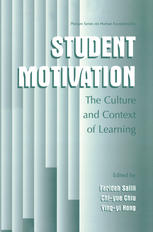

Most ebook files are in PDF format, so you can easily read them using various software such as Foxit Reader or directly on the Google Chrome browser.
Some ebook files are released by publishers in other formats such as .awz, .mobi, .epub, .fb2, etc. You may need to install specific software to read these formats on mobile/PC, such as Calibre.
Please read the tutorial at this link: https://ebookbell.com/faq
We offer FREE conversion to the popular formats you request; however, this may take some time. Therefore, right after payment, please email us, and we will try to provide the service as quickly as possible.
For some exceptional file formats or broken links (if any), please refrain from opening any disputes. Instead, email us first, and we will try to assist within a maximum of 6 hours.
EbookBell Team

4.4
102 reviewsEver since the advent of the intelligence test we have thought of exceptional achievement in terms of cognitive attributes. We have words and phrases like "genius," "above average intelligence," "average" and "mentally deficient" to describe different levels of cognitive ability. In the United States widespread use of intelligence tests followed the success of the in World War I, and for the next half-century Army Alpha and Beta Tests intelligence tests were the major measures used to predict school and vocational achievement. Learning was primarily studied in laboratories, and the behaviorist theories that were dominant largely dealt with changes in overt behavior. As a result there was relatively little influence of learning research on concepts involving cognition and intelligence. The transition from behaviorism to cognitive psychology that began in the 1940's and 50's came into full flower in the 1970's and 80's, and great progress was made in understanding learning, memory, and thinking. In the decades following World War I there had been many debates about the possible influence of environmental conditions on intelligence, but the cognitive abilities measured by intelligence tests were generally believed to be determined by heredity. The intelligence tests of cognitive abilities correlated substantially with academic performance; so their use in determining which students needed special help in school or which students were capable of university work was widely accepted. As cognitive psychology became dominant, it became apparent that although heredity was important, intelligence consisted of learnable abilities.